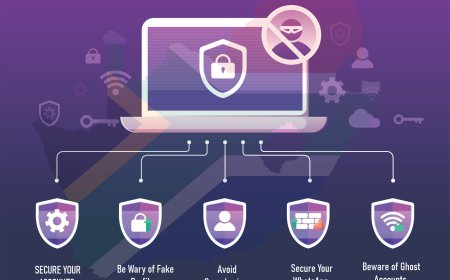Botswana's Digital Frontier: The Top 5 Cybersecurity Threats 2025
Discover Botswana's top 5 cybersecurity threats, from crippling ransomware attacks on its diamond industry to sophisticated phishing schemes targeting its citizens. Learn how the nation can secure its digital future

Botswana is widely regarded as a beacon of stability and economic prudence in Africa. As the nation aggressively pursues its digital transformation agenda—expanding e-government services, fostering a digital economy, and increasing internet penetration—it simultaneously opens new doors for cybercriminals. This digital progress, while essential for future growth, presents a double-edged sword. The country's critical sectors, including its world-renowned diamond industry, growing financial services hub, and government infrastructure, are becoming increasingly attractive targets. Without a proportional growth in cyber-resilience, Botswana's digital ambitions are at risk. This article outlines the top five cybersecurity threats on the nation's hit list.
5. Data Breaches and Privacy Violations
As more government and business services move online, vast amounts of sensitive citizen and corporate data are being collected and stored. From national identity information to financial records and business intelligence, this data is a treasure trove for criminals. The primary threat is not just external hacking but also inadequate internal data protection practices. Weak access controls, unpatched systems, and a lack of encryption can lead to significant data breaches. Such incidents can result in mass identity theft, corporate espionage, and a severe erosion of public trust in the nation’s digital infrastructure, potentially stalling the adoption of e-services.
4. Insider Threats (The Enemy Within)
While external hackers grab headlines, the threat posed by insiders—both malicious and accidental—is one of the most insidious risks facing Botswana's organizations. A disgruntled employee with access to sensitive systems can steal valuable data, sabotage operations, or sell credentials to external criminal groups. Perhaps more commonly, a well-intentioned but untrained employee can accidentally trigger a major security incident by falling for a phishing scam, misconfiguring a cloud server, or losing a company device. In a close-knit business community, this internal threat is often underestimated, yet it can be just as devastating as a direct external attack.
3. Attacks on Critical National Infrastructure (CNI)
Botswana's economy is heavily reliant on a few key sectors: mining (diamonds), tourism, and financial services. A targeted cyberattack on any of these pillars could have disproportionately large consequences for the national economy. Imagine a ransomware attack that halts operations at a major diamond mine, a denial-of-service (DDoS) attack that cripples the national banking system, or an intrusion that compromises the integrity of government databases. As these sectors become more technologically integrated, their "attack surface" grows, making them prime targets for sophisticated attackers seeking to cause economic disruption or engage in high-stakes industrial espionage.
2. Ransomware Attacks
Ransomware is a global scourge, and Botswana is not immune. This form of malicious software encrypts an organization's files, rendering them inaccessible until a hefty ransom, typically demanded in cryptocurrency, is paid. For small and medium-sized enterprises (SMEs) in Botswana, a ransomware attack can be an extinction-level event. For larger corporations and government ministries, it can paralyze operations, disrupt public services, and lead to massive financial and reputational damage. The lack of dedicated incident response resources and a general skills shortage in specialized cybersecurity roles can make recovery from such an attack a slow and painful process.
1. Sophisticated Social Engineering and Phishing
The single greatest and most pervasive threat to Botswana is social engineering, most often executed through phishing and its variants (smishing via SMS and vishing via voice calls). Cybercriminals have moved beyond generic spam, now crafting highly targeted and convincing messages impersonating local banks (e.g., FNB Botswana, Standard Chartered), government agencies, and major mobile network operators. These attacks are designed to exploit human trust to steal login credentials, banking information, and personal data. Because this method targets people rather than complex technology, it effectively bypasses many technical security controls, making it the primary entry point for nearly all other forms of cybercrime, from financial fraud to ransomware deployment. The success of these campaigns is amplified by a need for greater public cybersecurity awareness across the population.
Conclusion: Building a Human Firewall
Botswana’s journey towards becoming a knowledge-based economy is irreversible, but its success hinges on building a secure digital foundation. While technological solutions are important, the threats outlined above highlight a common vulnerability: the human element. The nation's most urgent task is to invest in its "human firewall" through sustained public awareness campaigns, robust cybersecurity training within public and private sectors, and developing local talent to fill the critical skills gap. By fostering a nationwide culture of security-consciousness, Botswana can protect its hard-won economic stability and ensure its digital future is both prosperous and secure.
What's Your Reaction?
 Like
0
Like
0
 Dislike
0
Dislike
0
 Love
0
Love
0
 Funny
0
Funny
0
 Angry
0
Angry
0
 Sad
0
Sad
0
 Wow
0
Wow
0





































